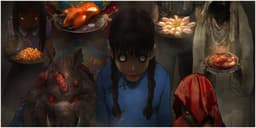Home / Arts and Entertainment / Taiwanese-American Director Pioneers Remote Animation Collaboration
Taiwanese-American Director Pioneers Remote Animation Collaboration
5 Nov
Summary
- Jane Wu's unconventional journey from fashion to Marvel storyboarding
- "Blue Eye Samurai" produced 100% remotely with global talent
- COVID-19 pandemic enabled international collaboration for the series

In November 2025, Jane Wu, a Taiwanese-American director, is making waves in the animation industry with her work on Netflix's acclaimed series "Blue Eye Samurai." Wu's unconventional journey to this point, from fashion designer to Marvel storyboard veteran, exemplifies the fusion of cultures and disciplines that defines her creative vision.
Born in Taiwan and immigrating to the U.S. at age 8, Wu's early career took unexpected turns. After studying fashion and costume design, she opened a comic book store, sparking her passion for storytelling. Wu then landed her first animation job at Sony in the 1990s, despite having what she describes as "the worst portfolio." She quickly rose through the ranks, honing her skills at Disney and working on several Marvel films, including "Shang-Chi and the Legend of the Ten Rings."
In 2019, Netflix approached Wu about directing an animated series, an offer she initially declined before reconsidering. As the COVID-19 pandemic spread, Wu realized the potential for remote production, and two weeks after accepting the "Blue Eye Samurai" job, the world shut down. The series became one of the first shows produced 100% remotely, with a global team spanning China, Spain, Japan, and France.
Wu's vision for "Blue Eye Samurai" centered on the concept of cultural fusion, inspired by the show's biracial protagonist Mizu. The production intentionally blended Eastern and Western elements, drawing inspiration from Sergio Leone while incorporating Japanese Bunraku puppet movements and martial arts traditions. Wu's own martial arts training also influenced the series' choreography.
The success of "Squid Game" and "Shogun" in the U.S. market has paved the way for international content, and Wu believes the pandemic has inadvertently prepared American audiences for subtitled programming. As she looks to the future, Wu remains focused on character-driven storytelling, cautiously optimistic about the role of AI, and committed to supporting the story, not the pipeline.




